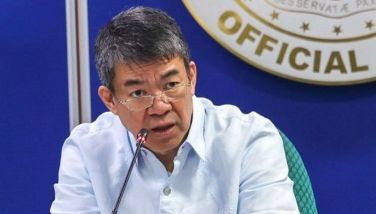Disaster Czar: Mayors must undergo disaster mgt trainings
CEBU, Philippines - Since they play a critical role during calamities, local chief executives should also undergo disaster management trainings and seminars, an official of the Provincial Disaster Risk Reduction and Management Office (PDRRMO) said.
The Department of the Interior and Local Government, on the other hand, reminded local governments on the compliance with the mandates under the Philippine Disaster Risk Reduction and Management Act of 2010, especially on the implementation of permanent mandatory positions in the local disaster offices.
PDRRMO chief Baltazar Tribunalo Jr. believes that trainings are very vital for mayors so they become more proactive and well-equipped on disaster management, considering that they are the decision-makers in times of emergency and calamity.
He said mayors decide on what measures should be taken to mitigate the effects of disasters since they know the hazards and threats present in their respective jurisdictions.
“It (training for mayors) should be a must and mandatory to ensure that governance will embrace the benefit of resilience... sustainable development,” Tribunalo also posted in his Facebook account.
He disclosed in an interview that only some of the mayors attended the series of trainings and seminars the disaster office conducted in the province.
He attributed the absence of the mayors to hectic schedules.
“But I don’t want to see it negatively. It’s just a part of our challenge,” he told reporters.
He further encouraged future leaders to put disaster preparedness as among their priorities considering that the province has already experienced natural disasters - the 7.2 magnitude earthquake and typhoon Yolanda in 2013.
Meanwhile, Dennis Itom, DRRM-Climate Change Adaptation focal person of DILG-Cebu Province, said the agency is asking LGUs to appoint permanent DRRM officers so they can focus on their jobs and in making appropriate plans and decisions.
The call was made during a gathering of town representatives for Disaster Risk Reduction and Management and Climate Change Adaptation held at the Capitol Social Hall last month.
In a report of the Provincial Information Office, Itom said he observed that some designated DRRMOs are performing multiple tasks so that they could hardly focus on the disaster-related matters.
The disaster law mandates the establishment of local DRRMO and Barangay DRRM Council, which are responsible for setting the implementation and coordination of disaster risk management programs within their territorial jurisdiction.
The four mandatory positions that compose the LDRRMO, as provided by the law, are the DRRM officer who will be assisted by three staff responsible for administration and training, research and planning, and operations and warning.
But budgetary limitations have been identified as a major challenge for the LGUs in the implementation of the mandatory positions for local disaster officers.
LGUs are also advised to store data, such as the history of areas in the barangays, which once were flooded in previous disasters and are potential risks and danger zones.
The disaster law further provides for the national risk reduction and management framework and institutionalizing the National Risk Reduction and Management Plan.
On the other hand, RA 9729 is the act mainstreaming climate change into government policy formulations, establishing the framework strategy and program on climate change and creating for this purpose the climate change commission.
Mainstreaming refers to the integration of policies and measures that address climate change into development planning and sectoral decision-making policy.
These two national laws provide for structures, systems and policies, plans and data requirements, trainings, service delivery and equipage.
The information office explained that equipage allows the LGU to identify potential hazards in their communities so only the most appropriate equipment and facilities are purchased by the LGU. (FREEMAN)
- Latest



















